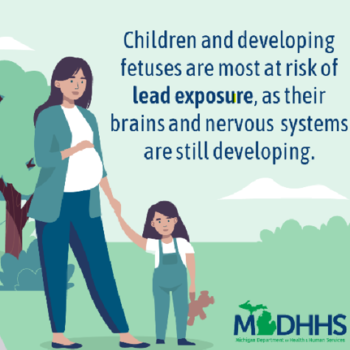
Lead poisoning affects the brain (thinking) abilities of children. It will affect their ability to learn in school.
Testing for blood lead is required for kids on Medicaid. It is recommended that testing be done at:
Most areas in our tri-county area (Branch, Hillsdale, St. Joseph counties) have shown "At Risk" housing or other sources that promote lead poisoning.
Parents/caregivers are encouraged to have the blood lead level checked at the appropriate intervals with visits to their physician for well-child examinations. Otherwise testing is available through our Agency by special arrangement. Screening for eligibility and appropriate testing is reviewed. Children may be screened through our WIC Nutrition Program.
Questions regarding testing can be answered at the following numbers:
Coldwater: 517-279-9561 ext. 115
Hillsdale: 517-437-7395 ext. 324
Three Rivers: 269-273-2161 ext. 211
The Community Health Agency also offers follow-up services for children with elevated blood leads by doing home assessments to determine sources of the lead. We also have referral procedures for children who need medical attention for their lead poisoning.
view environmental hazards
Signs and symptoms of Lead poisoning in children may include:
How can I determine if my child should be tested?
The following questions can help you identify your child’s risk for lead poisoning:
If you answered no to every question, this means your child is at LOW RISK for lead poisoning.
If you answered yes or don't know to any of these questions, this means your child is at HIGH RISK for lead poisoning. The only way to know for sure is to have your child tested. Talk to your child's doctor to arrange for a blood test. Show the doctor this questionnaire so he or she knows why your child is at risk.